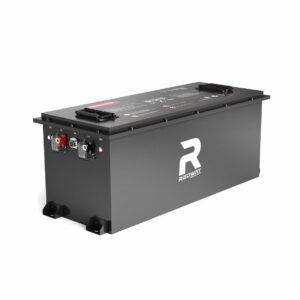How Long Do Cell Tower Batteries Last? Backup Power Explained
Cell tower batteries typically last 4–8 years, depending on battery type, usage cycles, and environmental conditions. Valve-regulated lead-acid (VRLA) batteries last 3–5 years, while lithium-ion variants endure 8–10 years. Regular maintenance and temperature control extend lifespan. These backup systems ensure uninterrupted service during grid outages, critical for maintaining cellular networks.
What Batteries Do Cell Phone Towers Use? A Comprehensive Guide
How Do Cell Tower Backup Batteries Function During Power Outages?
Cell tower batteries automatically activate during power disruptions, providing DC power to radio equipment. They bridge gaps until generators start or grid power resumes. Systems prioritize energy distribution to critical components, maintaining signal transmission. Backup duration ranges from 2–48 hours, depending on traffic load and battery capacity.

What Factors Influence Cell Tower Battery Lifespan?
Key determinants include:
- Temperature fluctuations (ideal range: 20°C–25°C)
- Discharge depth per cycle
- Charging protocol efficiency
- Vibration/mechanical stress
- Manufacturing quality
Lithium-ion batteries degrade 2–3% annually versus VRLA’s 5–8% yearly capacity loss. Properly maintained systems in climate-controlled shelters outperform exposed units.
Deep discharge cycles significantly impact longevity. A battery drained to 50% depth of discharge (DoD) can achieve 1,200 cycles, while 80% DoD reduces cycles to 500. Temperature extremes accelerate chemical reactions – VRLA batteries lose 50% capacity when operated at 35°C instead of 25°C. Modern battery management systems (BMS) mitigate these effects through:
| Protection Feature | Benefit |
|---|---|
| Thermal regulation | Maintains optimal operating temperature |
| Charge rate control | Prevents overcharging damage |
| Load balancing | Equalizes stress across battery cells |
Which Battery Types Power Modern Cell Towers?
Primary technologies:
- VRLA: Cost-effective, maintenance-free, 3–5-year lifespan
- Lithium-Ion: High energy density, 8–12-year lifespan, 40% lighter
- Nickel-Cadmium: Extreme temperature tolerance (-40°C to 50°C), 15–20-year lifespan
5G deployments increasingly adopt lithium-ion for faster recharge rates and smart monitoring compatibility.
How Does Weather Impact Battery Performance?
Extreme temperatures accelerate chemical degradation. For every 10°C above 25°C, VRLA lifespan halves. Sub-zero conditions reduce lithium-ion efficiency by 25–30%. Towers in desert regions require active cooling systems, while Arctic installations need heated enclosures. Humidity above 80% risks terminal corrosion.
Coastal sites face unique challenges from salt spray, which can corrode battery terminals within 18 months. Operators combat this with:
- Marine-grade stainless steel hardware
- Quarterly terminal cleaning protocols
- Anti-corrosion sprays with dielectric properties
Rainwater infiltration remains a concern – improper sealing can lead to internal short circuits. Recent innovations include hydrophobic battery casings that repel moisture while maintaining thermal conductivity.
What Are the Emerging Technologies in Cell Tower Battery Systems?
Innovations include:
- Solid-state lithium batteries (2025 rollout expected)
- AI-driven predictive maintenance algorithms
- Hybrid solar-battery systems with MPPT controllers
- Hydrogen fuel cell backups (72+ hour runtime)
“The shift to lithium-based solutions is irreversible. Our stress tests show next-gen batteries surviving 15,000 cycles at 80% DoD—triple VRLA capabilities. However, operators must upgrade battery management systems to handle high-density energy storage safely.” – Telecommunications Infrastructure Specialist
FAQ
- Can solar panels replace cell tower batteries?
- No. Solar requires battery buffers for nighttime operation. Hybrid systems reduce grid dependence but don’t eliminate backup needs.
- Do batteries affect 5G signal quality?
- Indirectly. Voltage instability during battery/generator transitions may cause micro-outages. Modern BMS units prevent this with ultra-fast transfer switches.
- How much do replacement batteries cost?
- VRLA replacements average $5,000–$15,000 per tower. Lithium systems cost $20,000–$50,000 but offer longer service intervals.
-
How long do cell tower batteries last?
Cell tower batteries typically last 4–8 years, depending on the battery type (e.g., lead-acid or lithium-ion), usage cycles, and environmental factors. Regular maintenance and optimal conditions can extend battery life.What is the backup power duration for cell towers?
Cell tower batteries usually provide backup power for 4 to 8 hours, with larger battery banks offering up to 12 hours. Critical sites may have backup systems lasting up to 24 hours.Do cell towers use backup generators?
Yes, after battery backup is depleted, many cell towers rely on backup generators (usually diesel-powered). These generators can provide extended power for days, depending on fuel availability.How does battery size affect backup duration at cell towers?
Larger battery capacities extend backup duration. Standard setups support 4 to 8 hours, but larger installations can last up to 12 hours or more during power outages.What factors influence the longevity of cell tower batteries?
Battery life is influenced by power demands, the type of battery, and environmental conditions. Higher traffic loads and extreme temperatures may reduce battery efficiency and lifespan.How do environmental factors impact cell tower battery life?
Extreme temperatures—both hot and cold—can shorten battery life by affecting chemical reactions within the battery. Consistent temperature control is essential for optimizing performance and lifespan.Can solar power be used for cell tower backup?
Yes, some remote or hybrid systems use solar panels to recharge batteries, providing an eco-friendly supplement to backup power, especially for longer outages.How does Fasta Power contribute to energy storage solutions?
Fasta Power specializes in high-performance lithium battery solutions, including batteries for forklifts, golf carts, and cars. Their advanced technology ensures reliable backup power for various applications, supporting industries transitioning from lead-acid to lithium solutions.
